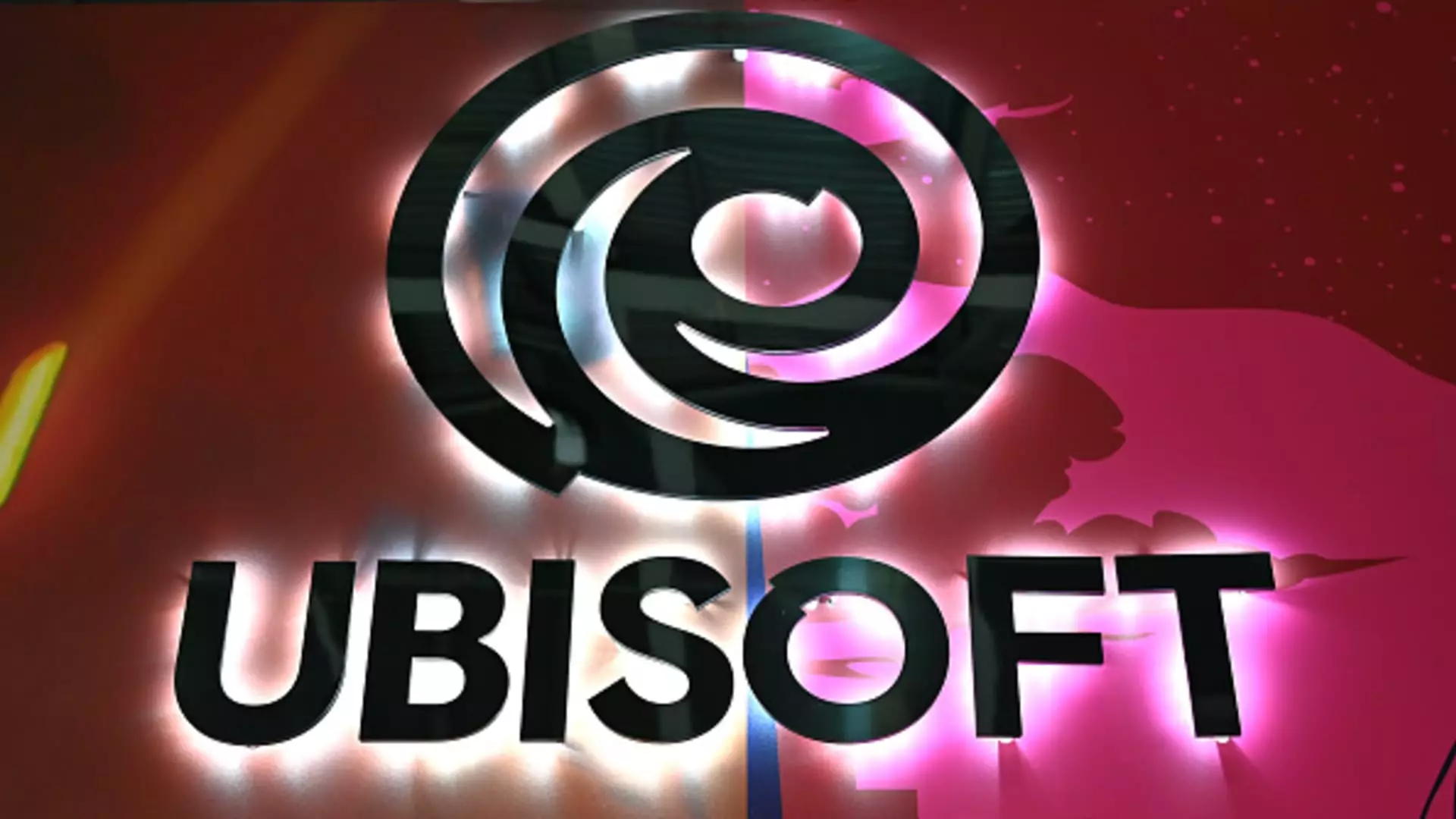Ubisoft, a prominent French video game company known for its blockbuster franchises like “Assassin’s Creed,” experienced a remarkable surge in its stock price recently, climbing over 30% in a single day. This dramatic increase is largely attributed to media reports suggesting that Tencent, a significant player in the gaming industry, along with Ubisoft’s founding Guillemot family, are contemplating a buyout of the company. Such speculation comes during a troubling time for the firm, having seen its market value plummet by over 50% within the year. The combination of Tencent and the Guillemot family exploring each other’s interests presents a scenario that could reshape the dynamics of the gaming landscape.
Analysts point to the partnership potential between Tencent, which holds a 10% stake in Ubisoft, and the Guillemot family, whose legacy contains deep roots within the organization. This potential maneuver to take the company private has sparked a surge of interest among investors, culminating in a staggering 33.5% spike in shares by the market’s close on the day of this announcement.
Despite the sharp rise in share prices, the mood surrounding Ubisoft remains tepid. Concerns about the company’s management and its ability to produce competitive titles have led to broader anxieties among the investor community. Recent decisions, like postponing the release of the highly anticipated “Assassin’s Creed: Shadows” game to February 2025, have not helped assuage fears regarding the game’s pipeline. This delay, attributed to the lackluster response for its “Star Wars Outlaws” title, underscores potential vulnerabilities in Ubisoft’s strategic planning.
In addition, the firm has revised its fiscal projections downward, forecasting net bookings at approximately €1.95 billion for the 2025 fiscal year, significantly lower than the €2.32 billion achieved in 2024. These adjustments denote a troubling trend that critics argue stems from mismanagement and an inability to reliably meet consumer demand.
Adding fuel to the fire of concern is the current state of the gaming industry itself. The global market for video games is projected to grow at a mere 2.1% year-over-year in 2024, significantly slower than the explosive growth seen during the COVID-19 pandemic. Analysts observe that gamers are gravitating more towards established titles rather than new releases, stretching their spending capabilities amid rising living costs. This shifts consumer focus and, consequently, revenue generation for companies like Ubisoft.
James Lockyer, a technology research analyst at Peel Hunt, noted that increased gaming options coupled with economic strain has left players less inclined to invest in new games. The result: a marketplace limited by rising costs and consumer fatigue. Ubisoft, reliant on its new launches for revitalizing sales figures, now finds itself navigating treacherous waters.
Against this backdrop, activist investor AJ Investments has captured headlines by rallying support to advocate for a dramatic overhaul in Ubisoft’s management. With less than a 1% stake in the game publisher, AJ Investments managed to amass backing from around 10% of Ubisoft’s shareholders. They are voicing calls for either a strategic sale to private equity groups or a partnership with Tencent. This outside pressure has prompted CEO Yves Guillemot to announce that a thorough review of the company’s executive strategies will commence to address operational inefficiencies.
The outcome of these internal evaluations, coupled with external pressures and a volatile market, will be critical for Ubisoft as it aims to stabilize itself and regain investor confidence. The tiny yet powerful push from its shareholders could either lead to transformative changes that help the company rebound or finalize its descent if change is not adequately embraced.
Ubisoft stands at a crucial crossroads, facing external challenges from a fluctuating gaming market and internal pressures stemming from activist investors and management critiques. The potential buyout discussions with Tencent and the Guillemot family provide a glimmer of hope in an otherwise bleak landscape, yet actualizing this opportunity hinges on decisive action amidst a rapidly evolving industry context. As the company seeks to prove its resilience, the next steps taken by management will dictate whether it can emerge from the current fog of uncertainty or become an example of an innovative titan unable to adapt to its changing surroundings.

